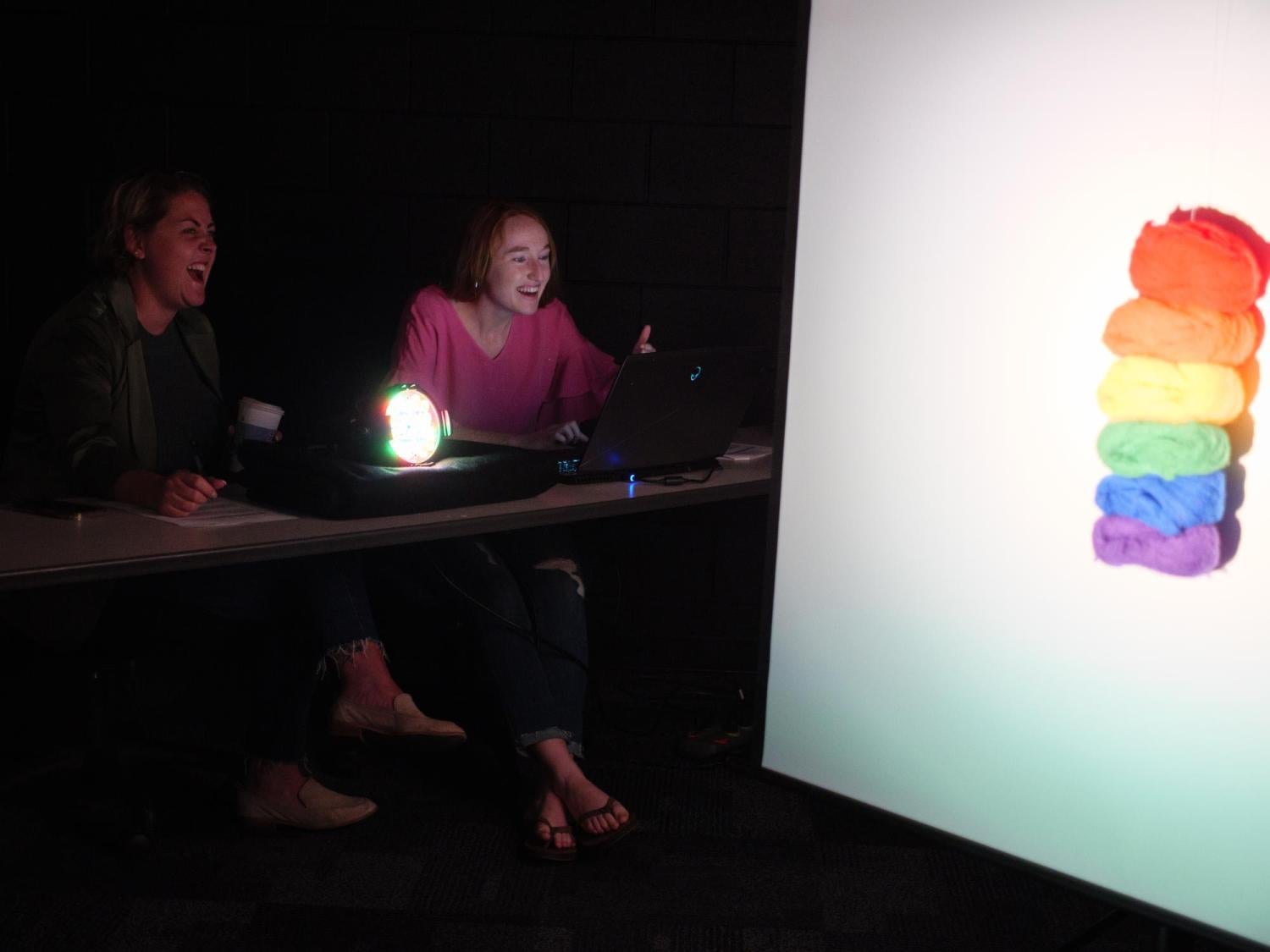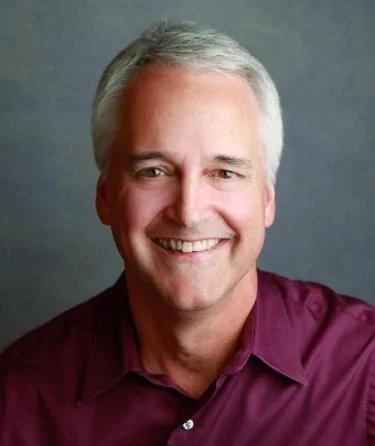CU Boulder’s lighting certificate illuminates career paths for professionals
IMAGE CAPTION: Rebeka Pech Moguel works in the photometric lab with Mark Jongewaard, an adjunct instructor. Photo credit: Patrick Campbell/CU Boulder.
Shortly after taking on the role of lighting design manager at the Nelson-Atkins Museum of Art, Rebeka Pech Moguel realized she needed formal lighting training. To fulfill her goal, the Kansas City resident enrolled in CU Boulder’s Professional Graduate Architectural Lighting Certificate program.

Perri Neuner, right, an architectural specification sales manager for Acuity Brands, works with a classmate in CU Boulder’s lighting lab to evaluate the color rendering properties of lighting. Photo credit: Patrick Campbell/CU Boulder.
“I wanted that technical knowledge,” said Pech Moguel, who has a BFA in photography and art history.
The certificate program is part of University of Colorado Boulder’s Lighting Education for Industry Professionals. Offered by the architectural engineering lighting program and designed for working professionals, the non-degree program empowers college graduates by equipping them with essential skills to enhance their contributions to their companies and advance their careers.
Program participants earn academic credit and a professional graduate Certificate in Architectural Lighting primarily through remote learning. The three-course structure includes two online courses with twice-weekly evening sessions throughout the academic year and culminates in a hybrid capstone course, featuring an intensive in-person week on the CU Boulder campus during the summer. The week offers hands-on practical training, covering aspects such as measuring light with laboratory equipment and utilizing software tools for light prediction in design.
The program can be a transformative professional development for students. In Pech Moguel’s case, it helped underscore the importance of color rendition, which measures how accurately a light source illuminates the true colors of objects when compared to daylight. “It’s crucial in the museum setting where our goal is to preserve the authentic appearance of a painting,” she said.
Perri Neuner, an architectural specification sales manager for Acuity Brands, also completed the 2022-23 certificate program. Neuner previously completed a business marketing degree and entered the lighting field without a lighting background.
Neuner said she liked the program’s hybrid nature and that during the in-person workshop she witnessed firsthand how colors appear under different correlated color temperatures.
“While screen presentations are informative, it’s very different how the colors translate in person to the naked eye,” she said.
Participating in the program enhances her work in architectural lighting for various spaces including schools, hospitals, atriums and offices, she explained.
“The program equipped me to address inquiries from architects, engineers and lighting designers during product presentations, particularly aspects like color rendering, color temperature, LED configurations and lighting software,” she said.
For professionals unable to commit to a yearlong program and employers who seek near-term professional development for their staff, CU Boulder also offers an in-person, intensive, three-and-a-half day, Rocky Mountain Lighting Academy Short Course. This popular program, initiated in 2013, typically reaches maximum enrollment several months before the event.

Bob Davis, appointed as CU Boulder’s director of professional lighting education in January 2023, is no newcomer to the university. From 1998 to 2007, Davis served as a full-time faculty member in the Department of Civil, Environmental and Architectural Engineering. After this period, he furthered his involvement in CU educational initiatives for professional audiences, serving as both a volunteer and adjunct faculty member before transitioning into his current role, leading and expanding the professional lighting education program as a scholar-in-residence.
Davis’ current CU Boulder position is part-time, as he concurrently maintains his position as chief lighting research engineer at Pacific Northwest National Laboratory (PNNL), a U.S. Department of Energy lab.
Why is CU Boulder’s professional lighting program important?
CU Boulder has established a strong reputation in the lighting industry through decades of offering lighting education in undergraduate and graduate architectural engineering programs. The newer professional programs came about because we recognized an ongoing need for lighting education, particularly among those who didn't pursue formal education in lighting. What I love is that we offer professionals a pathway to attain a valuable graduate-level credential in lighting while concurrently continuing in their current jobs.
What inspires you in your latest role with CU?
I get inspired by hearing students’ stories and their motivations for pursuing a certificate. Some individuals were at their wits’ end of what to do with life and were seeking a path forward for starting a new career trajectory in lighting. Our certificate program has opened new doors for these students.
The lighting field has historically lacked diversity. How can CU Boulder’s program contribute to changing this?
There are individuals from diverse backgrounds working in lighting-related industries who are interested in lighting, but don’t see a clear pathway for learning about it and earning a recognized credential. Returning to school full time isn’t usually a viable option. Our mostly distance-learning program serves as a critical entry point, extending opportunities beyond traditional undergraduate student populations.
Our vision is to position this program as an alternative pathway for underrepresented groups, including minority students and women, to enter an industry traditionally dominated by white men. In our first three years of the certificate program, we have seen a number of students from underrepresented groups participate.
To support this vision, several industry partners now offer financial awards to support our program, with a preference for students from underrepresented communities. In our current cohort, these awards support two students from diverse backgrounds and experiences who sought to pursue our certificate. These students represent the potential for our programs to meaningfully contribute to introducing new voices into the industry.


